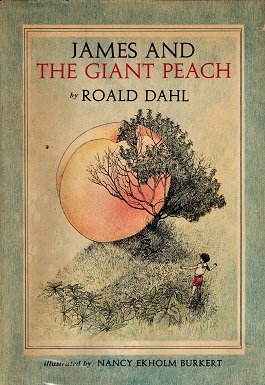Anatole France
Explore the timeline of Anatole France, a renowned French poet, journalist, and novelist of the late 19th and early 20th centuries. This timeline highlights key events in his life, including his birth in 1844, major literary works, and achievements such as winning the Nobel Prize in Literature in 1921. Delve into the life and legacy of one of France's literary icons.
Birth of Anatole France
Anatole France, born François-Anatole Thibault, was born on April 16, 1844, in Paris, France. He became one of France's most popular and respected authors, known for his ironic humor, critical views, and keen social commentary. Over his career, he wrote numerous novels, including works such as 'Thais' and 'The Crime of Sylvestre Bonnard.' France was also awarded the Nobel Prize in Literature in 1921 for his literary achievements.
First publication of 'Crime of Sylvestre Bonnard'
'The Crime of Sylvestre Bonnard' (Le Crime de Sylvestre Bonnard), the debut novel of Anatole France, was published in 1879. This novel is a literary treasure that introduced France's unique style, intertwining comedy with philosophical allegory. The narrative follows an elderly scholar whose kindness and curiosity lead to unexpected adventures. The novel's success marked the beginning of France's celebrated literary career, showcasing his deft blend of humor, irony, and reflection.
Publication of 'The Red Lily'
'The Red Lily' appeared in 1896 and is considered one of Anatole France's most influential novels. The story delves into themes of love, politics, and society through the life of its heroine, Thérèse Martin-Bellême. This work captures France's skillful narrative style and his ability to portray complex characters while simultaneously satirizing the social milieu of the French bourgeoisie. It was critically acclaimed for its rich descriptions and nuanced storytelling.
Publication of 'The Red Lily'
In April 1897, Anatole France published 'The Red Lily' ('Le Lys Rouge'), one of his most well-known novels. The novel explores themes of love and passion, set against the backdrop of French society. It follows the story of a young woman in search of true love and self-discovery, often reflecting France's sharp critical eye towards social norms and conventions of his time. It remains a significant work in French literature for its style and thematic depth.
Publication of 'The Gods Are Athirst'
'The Gods Are Athirst' or 'Les Dieux ont soif' is a novel published by Anatole France in 1912. This historical novel is set during the French Revolution and provides a striking critique of fanaticism. It follows the tragic story of Evariste Gamelin, a young and idealistic painter who becomes an ardent supporter of the Revolution, only to fall prey to its barbarity. France's nuanced portrayal of revolutionary zeal and its consequences underscores his mastery in blending history with philosophical insight.
Influence on French Academy policy change
Anatole France's election to the prestigious Académie Française in 1896 and his subsequent influence were significant. By 1912, he had become a central figure in the Academy, known for his progressive stances and influence on literary and critical thought. His election signaled a shift within the Academy towards embracing more modern and critical voices in literature, reflecting broader cultural changes in French society. France's tenure was marked by efforts to broaden the scope of the Academy's influence on contemporary arts and letters.
Publication of 'Penguin Island'
'Penguin Island' was published in 1908, a satirical novel by Anatole France that creatively uses a fictional prehistoric island of penguins to mirror the follies and vices of human societies. The book humorously and incisively critiques historical events, religious practices, and political ideologies, displaying France's skill in weaving together wit and social criticism into a compelling narrative. The novel was widely praised for its clever allegory and biting satire.
Anatole France awarded the Nobel Prize in Literature
On November 10, 1921, Anatole France was awarded the Nobel Prize in Literature. The Swedish Academy honored him 'in recognition of his brilliant literary achievements, characterized as they are by a nobility of style, a profound human sympathy, grace, and a true Gallic temperament.' This prestigious award solidified his reputation as one of the leading literary figures of his time.
Posthumously published works of Anatole France
Following his death in 1924, several of Anatole France's writings were published posthumously, attesting to the enduring interest in his work. These publications include essays, letters, and unfinished manuscripts which offer insights into his thoughts and artistic process. His posthumous works further cement the legacy of France as a literary giant and continue to be studied for their rich content and profound observations about society and human nature.
Death of Anatole France
Anatole France died on October 12, 1924, in Tours, France. He was 80 years old. Throughout his life, France had been a critical voice in literature, using his works to dissect and critique contemporary society with elegance and humor. His passing marked the end of an illustrious career that left a profound impact on French and world literature. He was buried in the Neuilly-sur-Seine Cemetery, leaving behind a remarkable literary legacy.
Frequently asked questions about Anatole France
Discover commonly asked questions regarding Anatole France. If there are any questions we may have overlooked, please let us know.
When did Anatole France win the Nobel Prize in Literature?
What is Anatole France's significance in French literature?
What are some notable works of Anatole France?
Who was Anatole France?
Related timelines
More timelines connected to Anatole France







